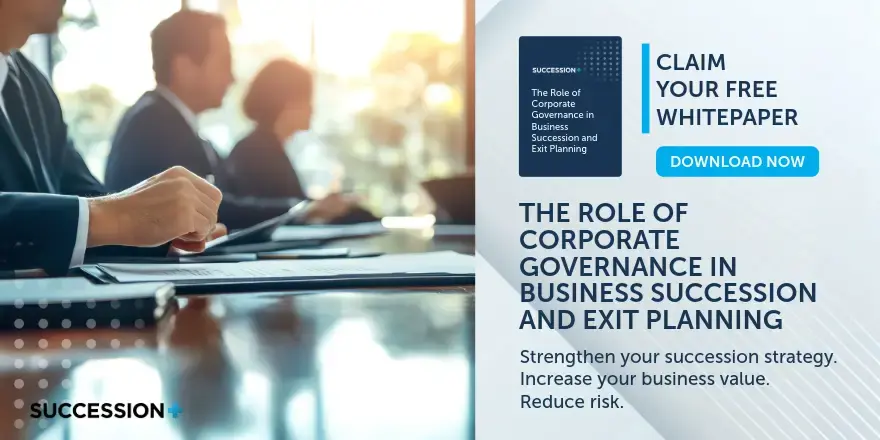Succession Planning
Understanding ESOPs – Register to our FREE webinar!
Understanding ESOPs – Register to our FREE webinar!
Succession Planning

Preparing a business for exit is one of the most important steps in an owner’s journey. Yet many entrepreneurs and SME leaders fall into the trap of willful blindness -ignoring the warning signs and delaying the tough decisions that secure the future value of their business.
The reality is this: failure to prepare properly can cost you the chance of a profitable and smooth business exit.
Willful blindness occurs when we have the necessary information, or ought to know something, but still refuse to acknowledge or act on it.
At a societal level, it’s easy to see:
As intelligent human beings, why do we behave like this?
The same patterns of avoidance play out in the business world.
For business owners, especially baby boomers, the stakes are even higher. A large wave of business owners are moving towards retirement in the short to medium term. Collectively, they control a huge proportion of SMEs and family businesses.
The reality is clear: many businesses will hit the market at the same time.
So why aren’t more owners preparing now? The answer may once again lie in willful blindness.
The excuses are familiar:
Often, it’s not one reason but a combination of many. Owners delay, hoping things will change. But hope is not a strategy.
The danger of ignoring the elephant in the room is that time runs out. We see it often:
Just like ignoring health issues, failing to deal with succession planning and exit strategy only makes the outcome worse.
The answer is simple, but not always easy: stop hiding from the issue and take action.
Unlike teenagers who can rely on parents to push them forward, baby boomer business owners don’t have that safety net. The responsibility is yours and the time to act is now.
We are all guilty of willful blindness in parts of our lives. For me, every time I drive to the golf course and unpack my clubs, I know how the day will likely end: frustration, too many strokes, and a scorecard I’d rather not look at.
Do I change my approach, take lessons, or practise more? No. I continue the same routine, caught in a cycle of wishful thinking and willful blindness.
The difference is that in golf, the stakes are low. In business, ignoring reality could mean losing the retirement you worked so hard for.
If you’re an SME owner thinking about retirement or planning a future transition, the worst mistake you can make is ignoring reality. Willful blindness delays progress and can erode the value you’ve worked so hard to build.
Taking small, deliberate steps now—acknowledging the challenges, planning ahead, and putting the right structures in place will make your business far more attractive to buyers and investors.
At Succession Plus, we help business owners confront the issues they’d rather avoid, giving them the clarity, tools, and strategies to exit on their terms. The elephant in the room won’t disappear on its own but by acting today, you can take control of tomorrow.

Succession Plus
 1 min read
1 min read
Dec 8, 2025 | Resources Succession Planning
The Role of Corporate Governance in Succession and Exit Planning
 3 min read
3 min read
Dec 4, 2025 | Resources Succession Planning Business Value Acceleration
Corporate Governance for Stronger Succession and Exit Outcomes
 2 min read
2 min read
Oct 16, 2025 | Resources Succession Planning
Business Exit Pathway Options Guide | Succession Plus
.webp) 2 min read
2 min read
Oct 14, 2025 | Resources Succession Planning
Legal Readiness Checklist for Business Exit Planning